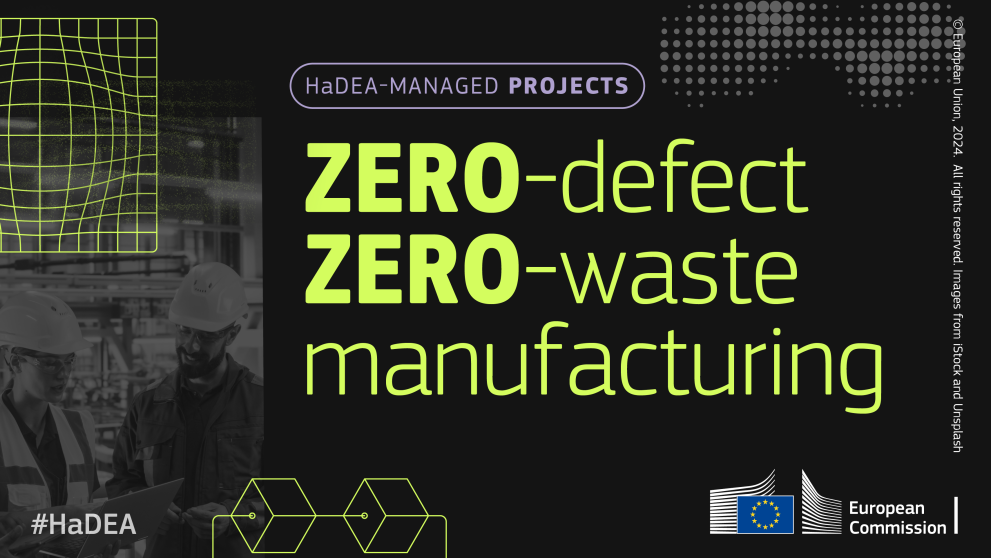
Every 30 March, we celebrate Zero Waste Day which encourages sustainable production. HaDEA manages projects working to reach zero-defect and zero-waste of energy in manufacturing systems through optimal and efficient production processes. These projects contribute to more sustainable practices across the entire production and supply chain, enabling the green transition in Europe.
ENGINE
- ENGINE is working on a ‘first-time-right’ zero-defect metal product design and manufacturing system, which will be first applied in the marine engine supply chain. In addition, the project is creating a modelling toolbox for the design process as well as data solutions, diagnostic tools, and efficient methodologies and strategies for its implementation and optimal use. The success of this endeavour could lead to safer working conditions, lower costs, and lower emissions.
OPENZDM
- OPENZDM is developing an open platform that utilises advanced Information and Communication Technologies (ICT) solutions and non-destructive testing to help companies realise zero defective material in a cyber-physical manufacturing process. This will allow a large reduction of wasted resources and energy consumption, while also supporting manufacturers to provide high-quality products. The open platform will be demonstrated in five production lines representing the largest part of the EU's manufacturing sector, geographically (including plants in northern and southern areas of Europe), technologically (fully & semi-automated, and manual processes) and from their value chain positioning (including Tier 1, Tier 2 suppliers, technology suppliers and Original Equipment Manufacturers (OEMs)).
ZDWZ
- ZDZW is developing a catalogue of Internet of Things (IoT) based non-destructive inspection (NDI) technologies to improve production efficiency, zero-defect, and sustainable manufacturing of European industries. The project addresses defects and waste reduction in three key areas that cover the entire manufacturing process and product lifecycle:
- monitoring and control improvement for process quality assurance, where first-time-right manufacturing rate can be increased, including improved durability properties and reduced waste generation;
- digitally enhanced Rework & Repair procedures for necessary part recovery and scrap reduction;
- Continuous Sustainability evaluation to ensure the efficient use of materials and components across the full production line.
Background
Horizon 2020 the EU’s multiannual funding programme between 2014 and 2020. H2020 provided Research and Innovation (R&I) funding for multi-national collaboration projects alongside individual researchers and SMEs via special funding instruments. Horizon 2020 is succeeded by Horizon Europe Programme, which will run until 2027.
Details
- Publication date
- 30 March 2024
- Author
- European Health and Digital Executive Agency
- Programme Sector
- Industry
- Programme
- Horizon Europe
- Horizon Europe Cluster 4: Industry
- Tags
- Digital technology
- EUFunded
- Innovation
